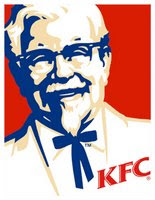2006 TOP TEN Number 3

The war on obesity was not confined by borders. Several towns and cities throughout the Uni ted Kingdom called for bans on shirtless men. The proposal was inspired by the least attractive side effect of the summer heatwave - the tendency of a number of often middle-aged men to go about in nothing more than shorts. There was a wave revulsion among most of the public at the summer's least welcome fashion trend.
ted Kingdom called for bans on shirtless men. The proposal was inspired by the least attractive side effect of the summer heatwave - the tendency of a number of often middle-aged men to go about in nothing more than shorts. There was a wave revulsion among most of the public at the summer's least welcome fashion trend.
 ted Kingdom called for bans on shirtless men. The proposal was inspired by the least attractive side effect of the summer heatwave - the tendency of a number of often middle-aged men to go about in nothing more than shorts. There was a wave revulsion among most of the public at the summer's least welcome fashion trend.
ted Kingdom called for bans on shirtless men. The proposal was inspired by the least attractive side effect of the summer heatwave - the tendency of a number of often middle-aged men to go about in nothing more than shorts. There was a wave revulsion among most of the public at the summer's least welcome fashion trend.But back in the states, more and more obese people are unable to get full medical care because they are either too big to fit into scanners, or their fat is too dense for X-rays or sound waves to penetrate. With 64 percent of the U.S. population either overweight or obese, the problem is worsening, but it represents a business opportunity for equipment makers and hospitals.Radiologists have their own term for it when writing up reports: "These images are limited due to body habitus."

Then the war on obesity shifted fronts and trans fats became a direct target. Three years after the city banned smoking in restaurants, health officials in New York unveiled a proposal that would bar cooks at any of the city's 24,600 food service establishments from using ingredients that contain the artery-clogging substance, commonly listed on food labels as partially hydrogenated oil. Artificial trans fats are found in some shortenings, margarine and fryin g oils and turn up in foods from pie crusts to french fries to doughnuts. But before the ban was raitifed earlier this month, KFC said it would phase out trans fats in all of its products. This would mean a total reinvention of their cooking oil used to fry almost everything on their menu from Original Recipe to potato wedges. In NY restaurants will be barred from using most frying oils containing artificial trans fats by July '07 and will have to eliminate the artificial trans fats from all of their foods by July 2008.
g oils and turn up in foods from pie crusts to french fries to doughnuts. But before the ban was raitifed earlier this month, KFC said it would phase out trans fats in all of its products. This would mean a total reinvention of their cooking oil used to fry almost everything on their menu from Original Recipe to potato wedges. In NY restaurants will be barred from using most frying oils containing artificial trans fats by July '07 and will have to eliminate the artificial trans fats from all of their foods by July 2008.

Then the war on obesity shifted fronts and trans fats became a direct target. Three years after the city banned smoking in restaurants, health officials in New York unveiled a proposal that would bar cooks at any of the city's 24,600 food service establishments from using ingredients that contain the artery-clogging substance, commonly listed on food labels as partially hydrogenated oil. Artificial trans fats are found in some shortenings, margarine and fryin
 g oils and turn up in foods from pie crusts to french fries to doughnuts. But before the ban was raitifed earlier this month, KFC said it would phase out trans fats in all of its products. This would mean a total reinvention of their cooking oil used to fry almost everything on their menu from Original Recipe to potato wedges. In NY restaurants will be barred from using most frying oils containing artificial trans fats by July '07 and will have to eliminate the artificial trans fats from all of their foods by July 2008.
g oils and turn up in foods from pie crusts to french fries to doughnuts. But before the ban was raitifed earlier this month, KFC said it would phase out trans fats in all of its products. This would mean a total reinvention of their cooking oil used to fry almost everything on their menu from Original Recipe to potato wedges. In NY restaurants will be barred from using most frying oils containing artificial trans fats by July '07 and will have to eliminate the artificial trans fats from all of their foods by July 2008.B ut bans and outcries did not stop some restaraunts from producing ultimate, fat-laden dishes. For a limited time only, Denny's Restaraunts featured a new grand slam breakfast called the Extreme Grand Slam. This breakfast has twice the amount of food as the Original Grand Slam containing 1,475 calories, 85 grams of fat, and 23 grams of saturated fat. And the debut of Burger King's BK Stackers were no better. The line included a Quad Stacker option of four slabs of beef, four slices of cheese and up to eight slices of bacon -- "smothered," as the company puts it, in a creamy sauce. The behemoth sandwich contains 1,000 calories and a whopping 68 grams of fat, including 30 grams of saturated fat.
ut bans and outcries did not stop some restaraunts from producing ultimate, fat-laden dishes. For a limited time only, Denny's Restaraunts featured a new grand slam breakfast called the Extreme Grand Slam. This breakfast has twice the amount of food as the Original Grand Slam containing 1,475 calories, 85 grams of fat, and 23 grams of saturated fat. And the debut of Burger King's BK Stackers were no better. The line included a Quad Stacker option of four slabs of beef, four slices of cheese and up to eight slices of bacon -- "smothered," as the company puts it, in a creamy sauce. The behemoth sandwich contains 1,000 calories and a whopping 68 grams of fat, including 30 grams of saturated fat.
 ut bans and outcries did not stop some restaraunts from producing ultimate, fat-laden dishes. For a limited time only, Denny's Restaraunts featured a new grand slam breakfast called the Extreme Grand Slam. This breakfast has twice the amount of food as the Original Grand Slam containing 1,475 calories, 85 grams of fat, and 23 grams of saturated fat. And the debut of Burger King's BK Stackers were no better. The line included a Quad Stacker option of four slabs of beef, four slices of cheese and up to eight slices of bacon -- "smothered," as the company puts it, in a creamy sauce. The behemoth sandwich contains 1,000 calories and a whopping 68 grams of fat, including 30 grams of saturated fat.
ut bans and outcries did not stop some restaraunts from producing ultimate, fat-laden dishes. For a limited time only, Denny's Restaraunts featured a new grand slam breakfast called the Extreme Grand Slam. This breakfast has twice the amount of food as the Original Grand Slam containing 1,475 calories, 85 grams of fat, and 23 grams of saturated fat. And the debut of Burger King's BK Stackers were no better. The line included a Quad Stacker option of four slabs of beef, four slices of cheese and up to eight slices of bacon -- "smothered," as the company puts it, in a creamy sauce. The behemoth sandwich contains 1,000 calories and a whopping 68 grams of fat, including 30 grams of saturated fat.

No comments:
Post a Comment